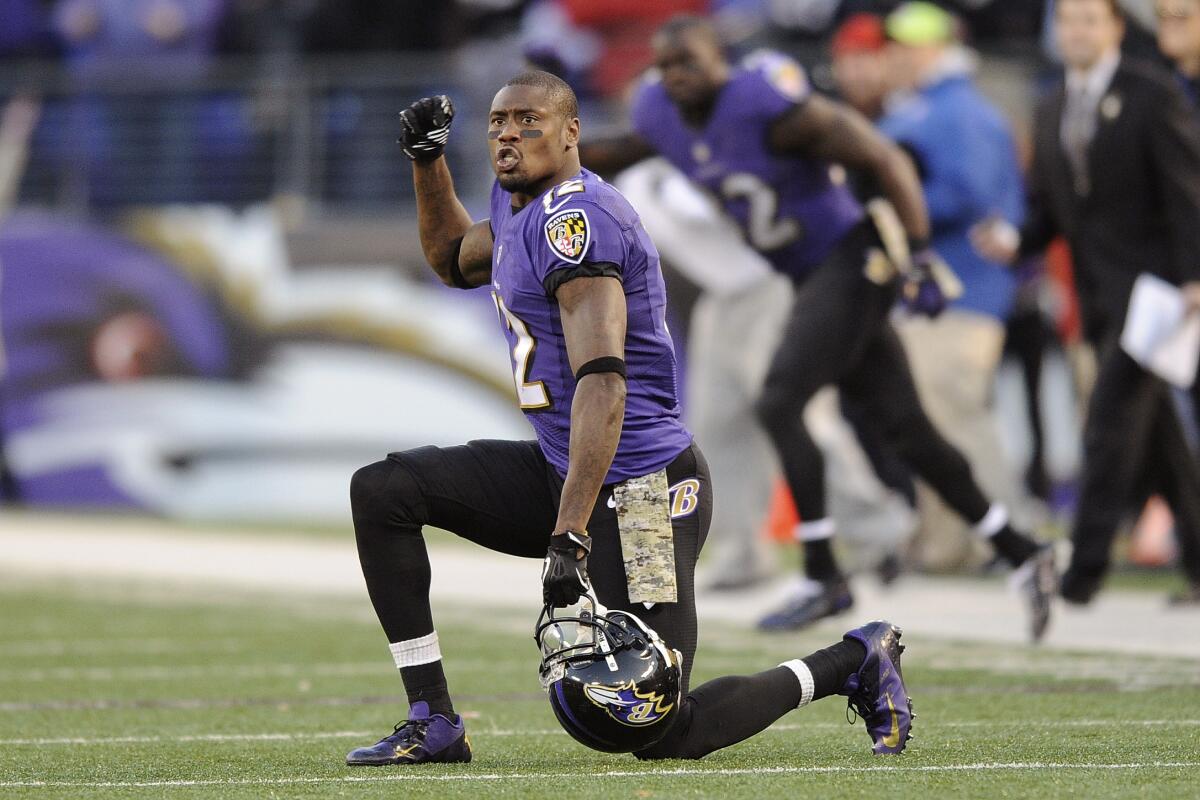Jacoby Jones, who won a Super Bowl with the Ravens, dies at 40

BALTIMORE — Former NFL receiver Jacoby Jones, whose 108-yard kickoff return in 2013 remains the longest touchdown in Super Bowl history, has died. He was 40.
The Houston Texans, Jones’ team for the first five seasons of his career, announced his death Sunday. There was no immediate word on a cause of death.
Jones played from 2007-15 for the Texans, Baltimore Ravens, San Diego Chargers and Pittsburgh Steelers, and he made several huge plays for the Ravens during their most recent Super Bowl title season.
Jones was a key part of Baltimore’s “Mile High Miracle” in a playoff game at Denver in January 2013. He caught a 70-yard touchdown pass with 31 seconds remaining in the fourth quarter to tie the score. The Ravens eventually won in double overtime.
In the Super Bowl that postseason against San Francisco, Jones caught a 56-yard TD pass from eventual game MVP Joe Flacco. Then he raced 108 yards to the end zone to open the second half and give Baltimore a 28-6 lead. The Ravens held on for a 34-31 victory.
That Super Bowl was played in New Orleans, where Jones grew up.
“My favorite football play was when Jacoby was talking to his mom in the end zone, just before a late-game kickoff return against the Vikings in a snowstorm shootout. Jacoby then raced to catch the ball and run it back for a touchdown,” Ravens coach John Harbaugh said in a statement. “My favorite Jacoby personal moment was every time I saw his smiling face full of joy.”
Jones made the Associated Press All-Pro team as a kick returner for the 2012 season. Shortly after that, he appeared on “Dancing With The Stars.”
“Jacoby was one of the most fun-loving teammates and people I’ve ever been around,” former Texans pass-rushing star J.J. Watt said on social media. “Always dancing and laughing, with a permanent smile on his face. Gone far, far too soon.”
In April, Jones became coach of the Beaumont Renegades, an arena football team in Texas.
“What can be said about him as a football player is only scratching the surface of who he was as a man,” the Renegades said in a statement. “When you needed something, he was there. When you called him, he answered. Didn’t matter if you were a family member, a close friend, player he coached, etc.”
More to Read
Go beyond the scoreboard
Get the latest on L.A.'s teams in the daily Sports Report newsletter.
You may occasionally receive promotional content from the Los Angeles Times.










